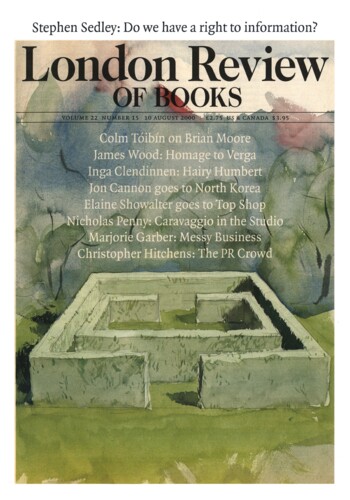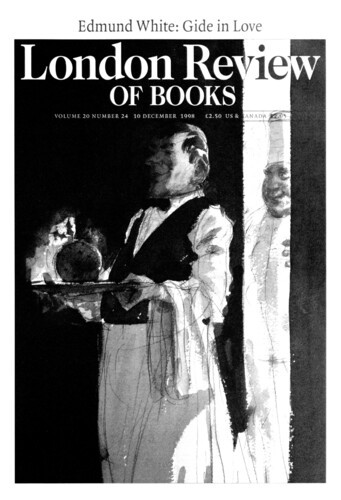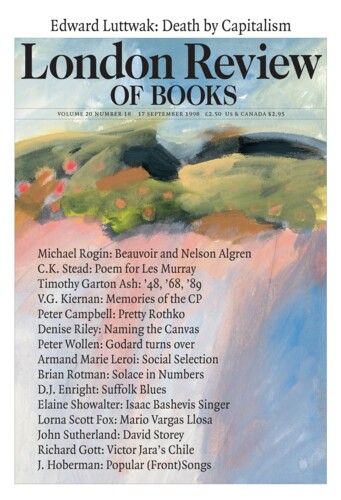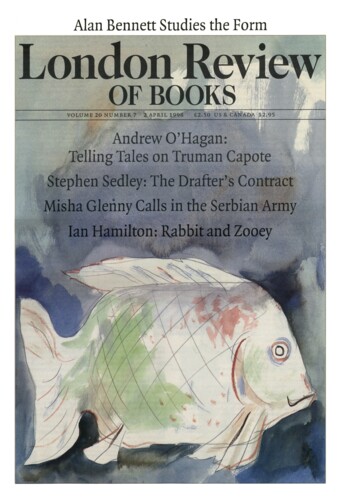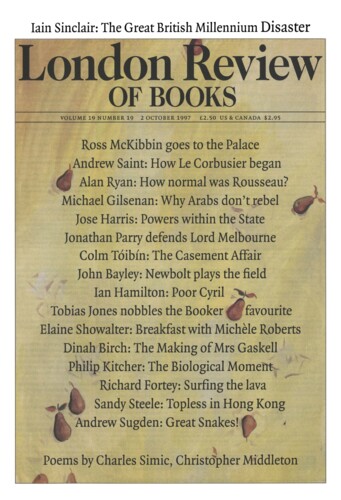Prada Queen: shopping
Elaine Showalter, 10 August 2000
‘Shopping for pleasure’: is the title tautological or oxymoronic? On one side, the joys of shopping seem almost axiomatic, especially now that every newspaper and magazine offers tips on how to do it, and Zagat is about to bring out a series of retail-tourist guidebooks. In a recent poll taken in London, more than a quarter of respondents said that shopping was what they liked best about the city. In her fashion guidebook, Mimi Spencer exhorts her readers to ‘shop for England … just for the sheer entertainment value of it all’. Suzy Gershman, the American author of Born to Shop: Great Britain, is ‘so enamoured’ of the January sales that she recommends flying in from Cleveland or Omaha for a long weekend. On the other hand, there are – there actually are – women living in Zone 1 who hate to shop, and many feminists who regard shopping as selfishness, frivolity or political deviance. When I wrote an essay for American Vogue a few years ago on my own fondness for department stores, catalogues and shopping malls, I was attacked by academic radicals as the Marie Antoinette of the MLA, whose answer to the sweated and unemployed must be ‘Let them wear Prada.’
